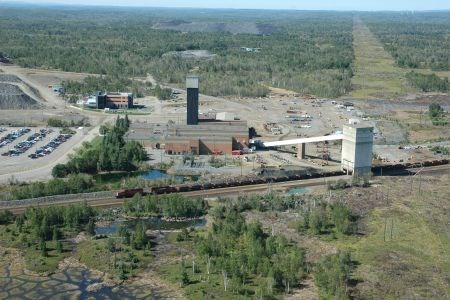Mining is booming in Ontario but some say the province isn't getting its fair share of the resources.
“Minerals are not a renewable resource and every province charges a royalty to take ore out of its ground,” said Marie Kelly, a staff member of United Steelworkers District 6 (Ontario and Atlantic provinces). “Ontario is clearly the most mineral-rich province in Canada. We take out the most ore out of the ground on any given time of the year and yet we have the lowest royalty percentage.”
Kelly spoke to the Commission on Quality Public Services and Tax Fairness in Sudbury in early February to point out the province's return on minerals.
Saskatchewan, the Northwest Territories, British Columbia, Quebec and Newfoundland and Labrador collect more mining revenue than Ontario even though their mine production is less.
In 2010, Kelly said, Saskatchewan's mineral production value was $7 billion and Ontario's was $7.7 billion. However, total revenue for Saskatchewan amounted to $650 million while Ontario collected $82 million.
“Ontario, which took out more ore that year than Saskatchewan, got half a billion dollars less,” said Kelly. “It is important for us to get our fair share for the value of minerals we are allowing to be extracted.”
The mining tax rate has been slashed over the years, she said. Between 2000 and 2004, the rate was reduced from 20 per cent to 10 per cent for non-remote mines and five per cent of profits for remote mines. In comparison, Quebec raised its mining tax rate from 12 per cent in 2010 to 16 per cent this year. Manitoba has a sliding scale ranging from 10 to 17 per cent.
And while all industries are subject to corporate taxes, Kelly said resource companies in the province get a “unique” corporate tax break. The federal and provincial governments allow the companies to deduct mining tax and royalty payments from profits. However, Ontario offers a more generous deduction equal to 25 per cent of profits which results in the lowest corporate tax rate in Canada for resource companies.
“We have been trying to get the government to pay attention for a long time,” Kelly said.
The recent release of former TD economist Don Drummond's report – The Commission on the Reform of Ontario's Public Services – recommends the province eliminate the key tax break for mining companies and to review the mining tax system.
Chris Hodgson, president of the Ontario Mining Association, agrees the industry is growing but he doesn't want the mining tax rate changed.
“There is a need to attract investment so we need to ensure the tax rates are competitive,” he said. “We also have higher energy costs compared to our neighbours and elsewhere around the world in the resource sector.”
About $10 billion in capital has been spent the last few years and about the same is projected for the next couple of years.
“There is no other sector in Ontario investing that kind of money,” Hodgson said. “We should be really promoting our resources and Northern Ontario but keep the rates where they are. It is working. We just need to be more efficient.”
Hodgson said the mining royalties could be allocated differently by letting communities that host mines receive a portion.
In a letter to Ontario Finance Minister Dwight Duncan, Hodgson said “mining holds the potential to quite literally help dig Ontario out of debt. As the province faces a deficit of $16 billion this year, mining can be a partner in economic growth – growing jobs and growing government revenues.”
Kelly said the industry has a major impact on the province's economy but that could be increased with a higher tax rate.
“The government says we don't have enough money to bus our kids to school and to give you medication in your old age but they are giving our money away to corporate giants,” she said.
“Provinces on both sides of us made a decision to make sure their non-renewable resources, which have a high value on the global economy, are benefitting them when they come out of the ground. We have to do the same.”
MiningWatch Canada welcomed the Drummond Report's recommendations on the mining tax break and rates since the current situation means the province is missing out on hundreds of millions of dollars of potential revenues.
“Given the province's economic situation and the current growth in the mining sector, this is an important recommendation that the government should definitely implement in this year's budget,” said Ramsey Hart, MiningWatch program co-ordinator, in a press release.
The organization also noted that in 2010, the world's top 40 mining companies saw their profit levels increase 156 per cent from 2009, according to a Price Waterhouse Cooper report. Five of those companies have operations in Ontario.
“The sector is also poised for significant expansion in the years ahead and Ontario needs to reform its tax system before major projects like those proposed for the . . . Ring of Fire go into production,” the press release stated.




